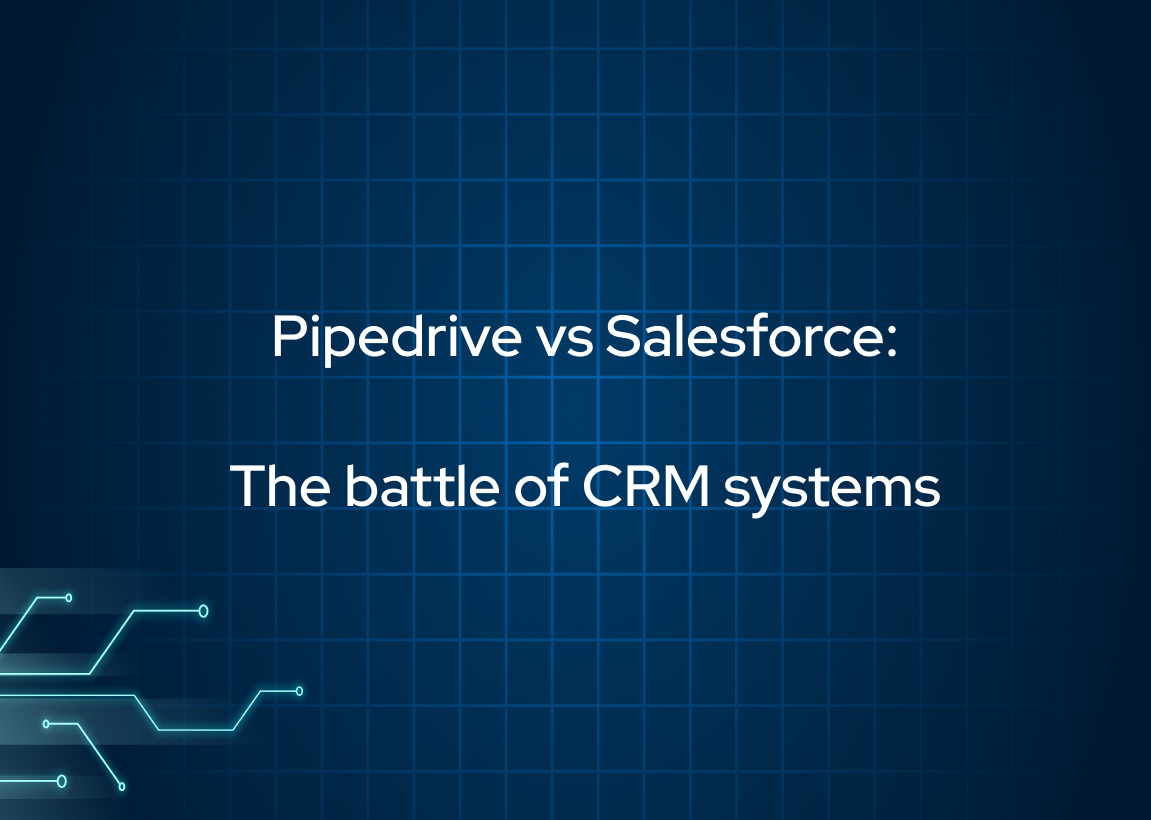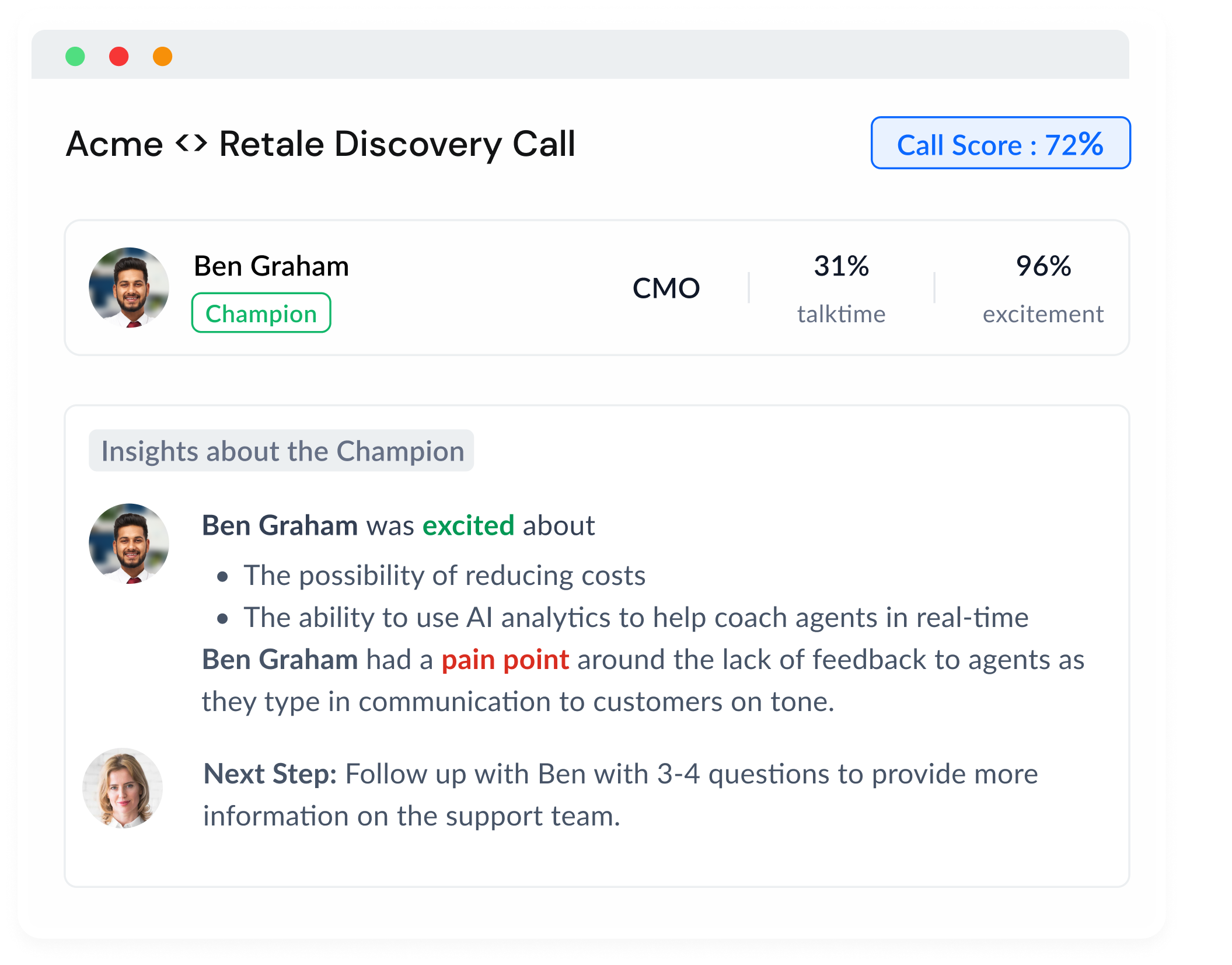Choosing the right Customer Relationship Management (CRM) system is crucial to the success of your business. With numerous options available, it can be challenging to pick the perfect one for your needs. Salesforce and Pipedrive rank among the top 5 choices in this domain, and in this post, we will explore the differences and similarities between the two to help you make an informed decision.
Overview of Pipedrive and Salesforce
Pipedrive, founded in 2010, is a sales-focused CRM designed for small to medium-sized businesses. Its aim is to simplify sales processes and give sales teams a user-friendly platform with a clear view of the sales pipeline.
Salesforce is also a big player in the CRM industry since 1999, started by Mark Benioff with his "Death to Software" motto. Its wide range of tools caters to businesses of all sizes, and people recognize its CRM for its robustness and flexibility.
Features and Functionality
Both Pipedrive and Salesforce offer a wide range of features to help businesses manage their sales processes. Here, we'll compare some of the most important functionalities:
- Contact and Lead Management: Both platforms provide strong lead and contact management features. Pipedrive offers customizable fields, while Salesforce boasts a more extensive range of options, including the ability to track and score leads based on their conversion rate.
- Sales Pipeline: People know Pipedrive for its clear pipeline management, which allows users to effortlessly drag and drop deals from one stage to another. Salesforce's Sales Cloud provides a similar feature, but it might require additional customization to achieve the same level of user-friendliness.
- Automation: Pipedrive provides basic sales automation features such as automated reminders and task assignments. Salesforce, with its Process Builder and Flow Builder tools, offers more advanced automation capabilities for businesses with more complex workflows.
Reporting and Analytics: Salesforce provides reporting and analytics tools that are more sophisticated than those of Pipedrive. It boasts adaptable dashboards, gives insights in real time, and uses AI to make predictions. However, Pipedrive does offer a selection of pre-built reports and dashboards that cater to the needs of smaller businesses.
User Experience and Interface
Pipedrive is known for its simplicity and ease of use. Its intuitive interface requires minimal setup and training, allowing users to get started quickly. The visually appealing pipeline view makes it easy to track deals and move them through the stages of the pipeline.
Salesforce, while powerful, can be more challenging to navigate due to its extensive range of features and customization options. Users might find it harder to learn, and some businesses might need training or advice to use the platform fully.
Integrations and Ecosystem
Pipedrive offers over 150 integrations with popular tools like Slack, Trello, and Mailchimp. Its API allows for custom integrations, and the Pipedrive Marketplace provides access to various third-party apps and add-ons.
Salesforce's ecosystem is much larger, with thousands of integrations and a vast AppExchange marketplace. This extensive ecosystem means businesses can build a fully customized and integrated tech stack around Salesforce.
Scaling with Your Business
Both Pipedrive and Salesforce can scale with your business, but their approaches differ. Pipedrive is more suitable for small to medium-sized businesses with straightforward sales processes. As your business grows, you can upgrade to higher-tier plans and take advantage of additional features and storage.
Salesforce offers a wide variety of tools and customization choices, making it ideal for businesses needing an in-depth CRM solution. While it is flexible and can grow with your needs, remember that scaling might mean spending more on customization and development.
Pricing and Plans
Pipedrive offers a more affordable pricing structure compared to Salesforce. Its plans start at $14.90 per user per month (billed annually) for the Essential plan and go up to $99 per user per month for the Super plan. All plans include core CRM features, and higher-tier plans offer additional features like advanced automation and reporting.
Salesforce's pricing is higher and more complex. The Sales Cloud CRM pricing starts at $25 per user each month for the Essentials plan and goes up to $300 for the Unlimited plan when billed yearly. The Essentials plan provides basic CRM tools, but for advanced features and customization, you'd need the pricier plans.
Support and Community
Pipedrive provides email and chat support for all plans, with phone support available for customers on the Advanced plan or higher. They also offer a comprehensive knowledge base and a community forum where users can ask questions and share best practices.
Salesforce offers a robust support ecosystem, including a comprehensive help center, online training, and certification programs. Customers on higher-tier plans have access to 24/7 phone support and a dedicated success manager. Salesforce also boasts a large and active community of users, developers, and partners who can provide assistance and advice.
Making the Right Decision for Your Business
When choosing between Pipedrive and Salesforce, it's crucial to consider your business's size, needs, and budget. Pipedrive works well for smaller businesses needing a straightforward CRM with a user-friendly sales pipeline. In contrast, Salesforce is more fitting for bigger businesses or those with intricate sales workflows, demanding advanced customization and integrations.
Conclusion
Both Pipedrive and Salesforce are powerful CRM platforms, each with its own strengths and weaknesses. For the best choice for your business, assess your unique needs and weigh aspects such as user-friendliness, features, ability to grow, cost, and customer support. Ultimately, the right CRM system will help you streamline your sales processes, improve customer relationships, and achieve sales targets to drive business growth.
PS: Adding notes to the CRM system after every sales conversation is hard. If you miss adding the notes, your manager gets frustrated during deal reviews, and you have less data to prepare before your next conversation or follow-up message.
Sybill automates this for you. It records the main points of a call and auto-adds summaries, action items, interests, and concerns of each potential customer to their profile. If they mention personal details like weekend plans or pet peeves, it logs those too, helping you connect more quickly and maintain the relationship.
Sybill integrates with Salesforce out of the box.
If your organization uses Pipedrive and is interested in exploring Sybill for your needs, let’s chat. We can potentially build a custom Pipedrive integration for you.
Check us out here!















.png)





